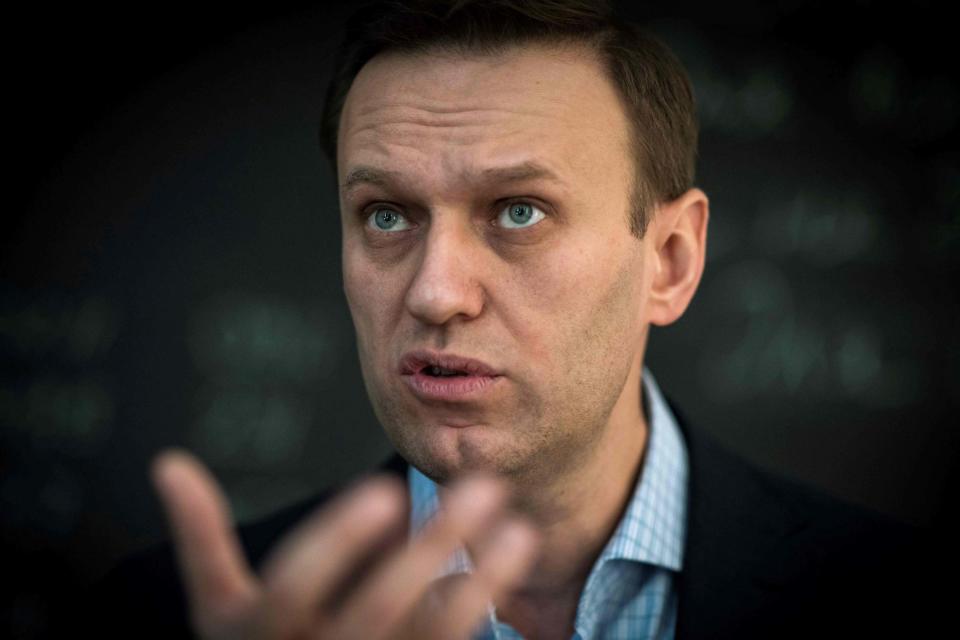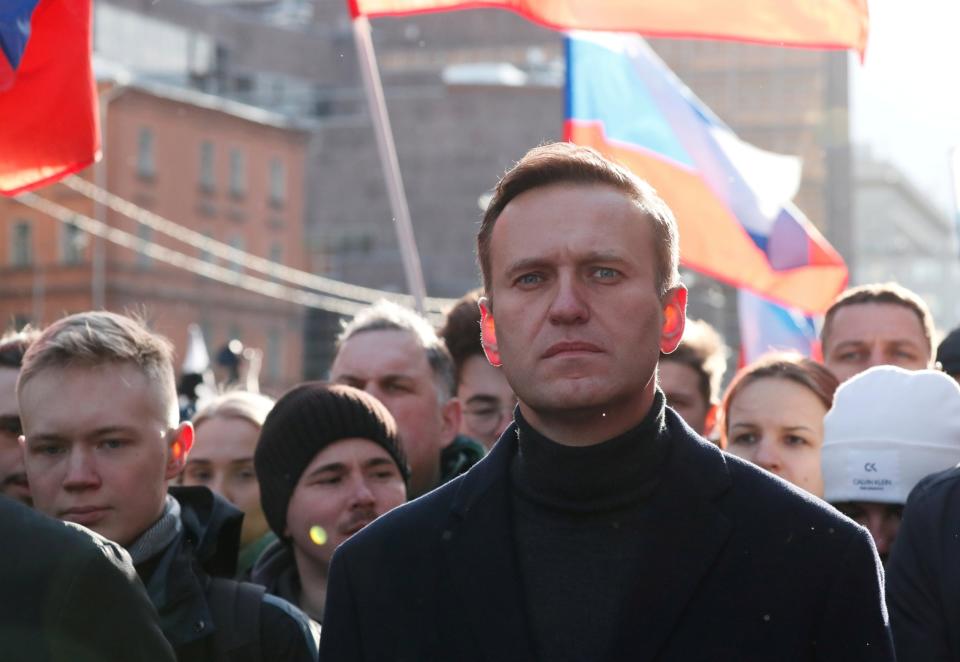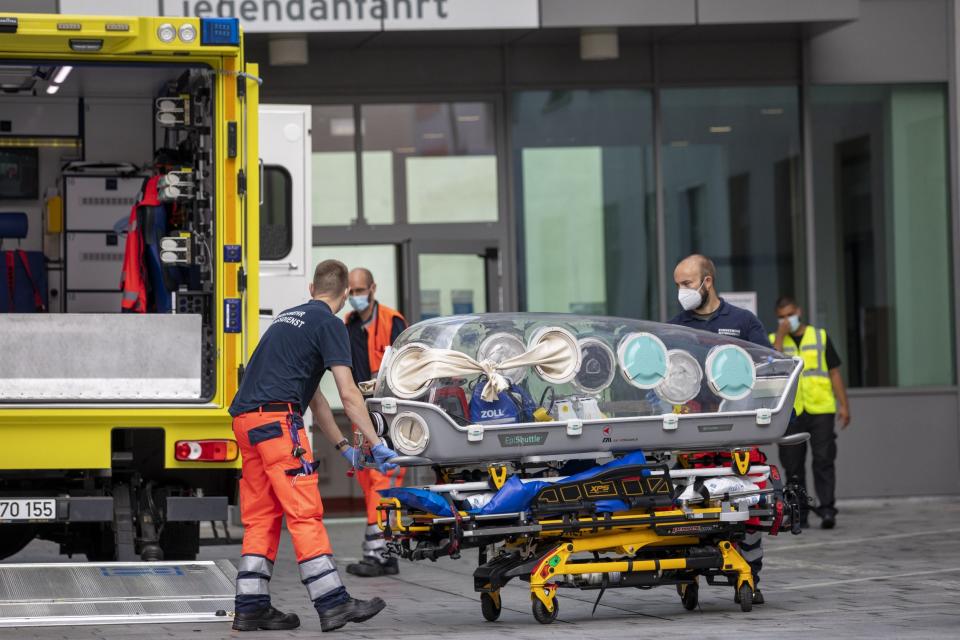Nerve agent Novichok was used to poison Putin critic Alexei Navalny, Germany says

The German government says tests have showed nerve agent Novichok in samples from Russian opposition leader Alexei Navalny, who fell ill on a flight back to Moscow from Siberia.
Mr Navalny, a long-time opponent of Russian President Vladimir Putin, collapsed on a plane on August 20 and was taken to a hospital in the Siberian city of Omsk after the plane made an emergency landing.
He was later transferred to Berlin's Charite hospital, where doctors said there were indications that he had been poisoned.
Chancellor Angela Merkel's spokesman, Steffen Seibert, said in a statement on Wednesday that testing by a special German military laboratory had shown proof of "a chemical nerve agent from the Novichok group".
Toxology tests of blood samples from Mr Navalny produced "unequivocal evidence" that he was poisoned with Novichok, Mr Seibert said.

Novichok, a Soviet-era nerve agent, was used to poison former Russian spy Sergei Skripal and his daughter in Britain.
It is a cholinesterase inhibitor, part of the class of substances that doctors at the Charite initially identified in Mr Navalny.
Mr Seibert said the German government will inform its partners in the European Union and NATO about the test results.

He said that it will consult with its partners in light of the Russian response "on an appropriate joint response".
Mr Navalny's allies in Russia have insisted he was deliberately poisoned by the country's authorities, accusations that the Kremlin rejected as "empty noise".
The Russian doctors who treated Mr Navalny in Siberia have repeatedly contested the German hospital's conclusion, saying they had ruled out poisoning as a diagnosis and that their tests for poisonous substances came back negative.
More follows...

 Yahoo Sport
Yahoo Sport 





































